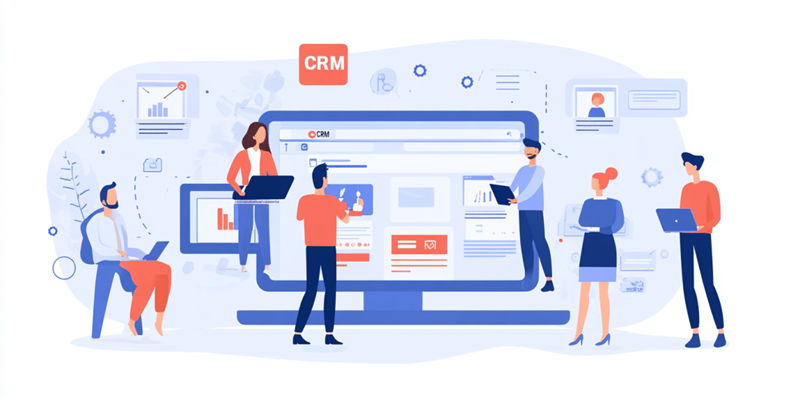In today’s highly competitive business environment, the ability of a call center to provide exceptional customer service can be a significant differentiator for organizations. The combination of rapid technological advancements and changing customer expectations means businesses must constantly innovate to maintain a competitive edge. One of the most effective ways to enhance call center efficiency and ensure superior customer service is through the implementation of a dedicated Customer Relationship Management (CRM) system. These systems streamline the handling of customer interactions, optimize workflow processes, and provide invaluable insights that facilitate better decision-making and improved service quality.
The Role of CRM in Centralizing Customer Information
A call center’s success hinges on its ability to effectively manage and respond to a high volume of customer interactions. Given the multitude of customer touchpoints, it is crucial for agents to have access to comprehensive, up-to-date information at all times. This is where a CRM system becomes indispensable. It acts as a centralized repository for customer data, compiling valuable information such as contact details, interaction history, and service records into a single, easily accessible location. In turn, this ensures that agents are well-informed and can provide personalized service more consistently.
Moreover, real-time access to customer data empowers agents to quickly resolve issues, as they can immediately retrieve relevant information during a call. This capability significantly reduces response times and enhances the quality of customer interactions, leading to higher levels of customer satisfaction. In addition, the ability to access pertinent customer information can improve first-call resolution rates, as agents can address issues more accurately without the need for repeated follow-ups.
Streamlining Operations through Automation and Integration
CRM systems offer a multitude of features designed to streamline call center operations and alleviate administrative burdens on agents. One of the most impactful functionalities is the automation of repetitive tasks. From sending follow-up emails to logging call details, automation ensures that routine activities are handled swiftly and accurately, freeing agents to focus on more complex customer issues. This increased efficiency not only enhances overall productivity but also minimizes the risk of human error, thereby improving service reliability.
Seamless integration with other business tools further amplifies the benefits of a CRM system. By connecting with email services, live chat platforms, and social media channels, a CRM system provides a holistic view of customer interactions across various touchpoints. This unified perspective enables agents to deliver cohesive and consistent service, regardless of the channel through which a customer contacts the call center. Integration also promotes better coordination among different departments, facilitating a more collaborative approach to customer service.
Analyzing Performance and Driving Continuous Improvement
Beyond managing customer data and streamlining daily operations, CRM systems are invaluable for monitoring and enhancing overall call center performance. Through robust analytics and reporting features, managers can track key performance indicators (KPIs) such as call resolution times, customer satisfaction scores, and agent productivity. By analyzing these metrics, call center managers gain critical insights into operational strengths and areas needing improvement, enabling them to make informed decisions to drive continuous enhancement in service quality.
Additionally, performance analytics can be used to identify training needs for agents, ensuring that staff are equipped with the necessary skills and knowledge to handle customer inquiries effectively. By leveraging data to tailor training programs, call centers can foster a culture of continuous improvement and professional development. This not only enhances the proficiency of individual agents but also contributes to the overall efficiency and effectiveness of the entire call center operation.
Conclusion: Evolving Customer Service with CRM Systems
In today’s fiercely competitive business landscape, delivering outstanding customer service through call centers can give organizations a crucial advantage. With rapid technological progress and evolving customer expectations, businesses must consistently innovate to stay ahead. One powerful strategy to boost call center efficiency and ensure excellent customer service is by implementing a robust Customer Relationship Management (CRM) system. These systems are designed to streamline customer interactions, enhance workflow processes, and provide valuable insights that aid in better decision-making and improved service quality. A CRM system helps call centers manage customer data efficiently, track interactions, and personalize the customer experience. This not only leads to higher customer satisfaction but also boosts loyalty and retention rates. As a result, businesses can respond more effectively to customer needs and adapt to market changes swiftly. Investing in a CRM system is not just about technology; it’s about embracing a customer-centric approach that drives business growth and fosters long-term success.

